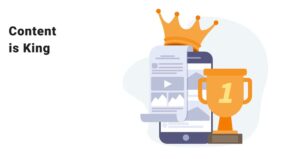Home » Off Page SEO
Off-Page SEO and Backlinking: Building Authority Beyond Your Website
 Off-page SEO refers to the strategies and techniques used to improve a website’s visibility and ranking in search engine results pages (SERPs) outside of its own domain. While on-page SEO focuses on optimising individual pages, off-page SEO encompasses all activities that take place away from your website, with the primary goal of enhancing its authority, credibility, and trustworthiness. One of the most critical components of off-page SEO is backlinking, which plays a significant role in determining a site’s ranking. This article explores the importance of off-page SEO and the role of backlinks in building online authority.
Off-page SEO refers to the strategies and techniques used to improve a website’s visibility and ranking in search engine results pages (SERPs) outside of its own domain. While on-page SEO focuses on optimising individual pages, off-page SEO encompasses all activities that take place away from your website, with the primary goal of enhancing its authority, credibility, and trustworthiness. One of the most critical components of off-page SEO is backlinking, which plays a significant role in determining a site’s ranking. This article explores the importance of off-page SEO and the role of backlinks in building online authority.
Understanding Off-Page SEO
Off-page SEO includes various activities aimed at promoting your website and enhancing its reputation across the internet. These activities signal to search engines that your website is a reliable and valuable resource, leading to improved rankings. Key aspects of off-page SEO include:
-
Backlinking: The process of acquiring hyperlinks from other websites to your own. Backlinks are crucial as they act as votes of confidence, indicating to search engines that your content is trustworthy and relevant.
-
Social Media Engagement: Promoting your content on social media platforms can drive traffic to your website and create opportunities for backlinks. Sharing engaging content increases visibility and encourages users to link back to your site.
-
Influencer Marketing: Collaborating with influencers in your niche can help you reach a broader audience and build credibility. When influencers share your content, it can lead to increased traffic and backlinks from their followers and networks.
-
Guest Blogging: Writing guest posts for reputable websites in your industry can help you gain exposure and earn backlinks. When you contribute valuable content to another site, you can include a link back to your own, driving traffic and improving SEO.
-
Online Directories and Listings: Submitting your website to reputable online directories and local business listings can enhance your online presence. These listings often provide backlinks, helping to improve your site’s authority.
The Importance of Backlinking
Backlinks are one of the most critical factors in off-page SEO. They serve multiple purposes:
-
Authority and Trust: High-quality backlinks from reputable sites signal to search engines that your content is valuable and credible. This can boost your site’s authority and improve its chances of ranking higher in SERPs.
-
Referral Traffic: Backlinks can drive traffic directly to your website. When users click on a link from another site, they are directed to your content, which can lead to increased engagement and potential conversions.
-
Improved Indexing: Search engines use backlinks to discover new content. When reputable sites link to your pages, search engine crawlers are more likely to find and index your content quickly.
Building Quality Backlinks
Not all backlinks are created equal; the quality of the links you acquire is crucial for effective off-page SEO. Here are some strategies for building high-quality backlinks:
-
Create Valuable Content: The foundation of effective backlinking is high-quality, engaging content that others want to share. Infographics, in-depth articles, and original research tend to attract more links.
-
Reach Out to Influencers: Identify influencers and bloggers in your niche and reach out to them with your content. If they find it valuable, they may share it with their audience, providing a backlink.
-
Participate in Online Communities: Engage in forums, discussion boards, and social media groups related to your industry. By providing valuable insights and sharing your content when relevant, you can attract attention and potential backlinks.
-
Monitor Competitors: Keep an eye on your competitors’ backlink profiles to identify opportunities. Tools like Ahrefs and SEMrush can help you analyse where competitors are earning links, allowing you to target similar sources.
-
Utilise Resource Pages: Many websites have resource pages that list helpful articles or tools in specific niches. Reach out to these sites and suggest your content for inclusion.
Conclusion
Off-page SEO and backlinking are essential components of a successful SEO strategy. By focusing on building high-quality backlinks and enhancing your online reputation, you can improve your website’s authority and visibility in search engine results. Don’t have the time to focus on off site SEO yourself? Let Optimal Web Design take care of this for you with our affordable local SEO packages.
As you implement off-page SEO techniques, remember that quality always trumps quantity; earning links from reputable and relevant sources will have a more significant impact than acquiring numerous low-quality links. Invest time and effort into off-page SEO, and watch as your website’s rankings and traffic soar.




